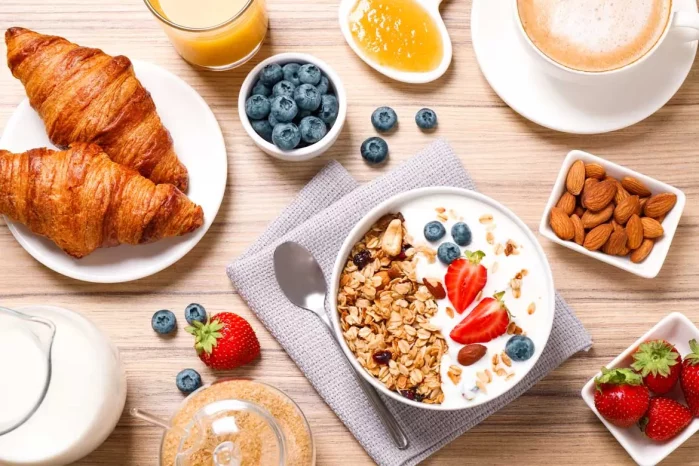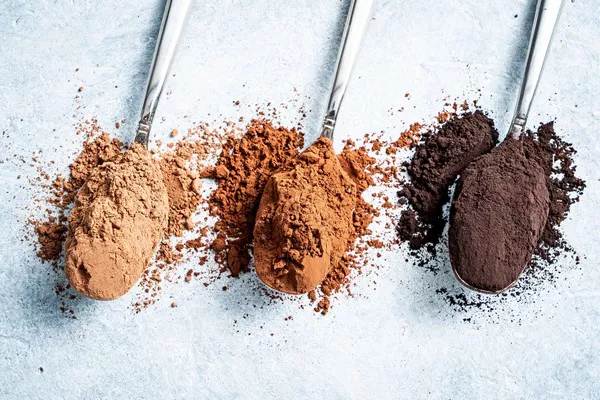Breakfast is often called the most important meal of the day. It provides the body with the necessary fuel to start the day, replenishing energy stores that were used up overnight. Eating a healthy and balanced breakfast can improve mood, boost productivity, and even support long-term health. But what exactly makes a “good” breakfast? The ideal breakfast should be nutritious, filling, and easy to prepare. It should provide a balance of carbohydrates, protein, healthy fats, and essential vitamins and minerals. Let’s explore the best options for a good breakfast and why they are beneficial.
Why Breakfast Matters
After fasting for hours overnight, your body needs food to kick-start your metabolism. A nutritious breakfast can:
Boost Energy: Breakfast provides essential carbohydrates that give the body the energy it needs to function properly throughout the morning.
Support Brain Function: A good breakfast helps to increase concentration and cognitive function, allowing for better focus at work or school.
Stabilize Blood Sugar: Eating a balanced breakfast prevents blood sugar levels from dipping too low and helps maintain steady energy levels.
Promote Healthy Metabolism: Starting the day with a meal can help regulate metabolism and prevent overeating later in the day.
Key Components of a Good Breakfast
A well-rounded breakfast includes four main components: carbohydrates, protein, healthy fats, and fiber. Let’s take a closer look at each.
1. Carbohydrates
Carbohydrates are the body’s primary source of energy. They break down into glucose, which fuels muscles and the brain. Healthy carbohydrates come from whole grains, fruits, and vegetables, which provide essential vitamins, minerals, and fiber.
Whole Grains: Foods like oatmeal, whole wheat toast, and quinoa are excellent sources of complex carbohydrates that are digested slowly, providing lasting energy.
Fruits and Vegetables: These are rich in natural sugars, antioxidants, vitamins, and minerals that support overall health.
Avoid Processed Sugars: It’s best to avoid sugary cereals, pastries, and other processed foods that can cause blood sugar spikes and crashes.
2. Protein
Protein is essential for muscle repair, immune function, and overall body repair. Including protein in your breakfast helps to maintain muscle mass and keep you feeling full longer.
Eggs: Eggs are an excellent source of complete protein. They also provide essential nutrients like vitamin B12, vitamin D, and choline, which support brain and heart health.
Greek Yogurt: Greek yogurt is high in protein and calcium, promoting strong bones and healthy digestion. It can be topped with fruits, nuts, or seeds for added nutrition.
Nuts and Seeds: Almonds, chia seeds, and sunflower seeds provide healthy fats, protein, and fiber, making them a great addition to smoothies or oatmeal.
Lean Meats: Turkey, chicken, or lean cuts of beef offer high-quality protein that supports muscle growth and repair.
3. Healthy Fats
Healthy fats are essential for brain function, hormone production, and overall well-being. They also help to keep you satisfied longer, preventing mid-morning hunger pangs.
Avocados: Rich in heart-healthy monounsaturated fats, avocados are perfect for spreading on whole grain toast or adding to a smoothie.
Nuts and Nut Butters: Walnuts, almonds, and nut butters are packed with omega-3 fatty acids and protein, which are great for brain health and energy.
Olive Oil: Adding a drizzle of olive oil to scrambled eggs or avocado toast provides healthy fats that can help support cognitive function and reduce inflammation.
4. Fiber
Fiber plays a crucial role in digestion and can help regulate blood sugar levels. A high-fiber breakfast can also keep you feeling full and satisfied for longer periods.
Oatmeal: Oats are an excellent source of soluble fiber, which helps lower cholesterol and stabilize blood sugar levels. They also provide a slow-releasing source of energy.
Fruits: Apples, berries, pears, and bananas are high in fiber and antioxidants, offering both digestive and immune health benefits.
Whole Grain Bread or Wraps: Whole grain bread is a good source of fiber, which supports digestion and helps keep you feeling full.
Great Breakfast Options to Start the Day
Now that we know the essential components of a good breakfast, let’s dive into specific breakfast options that meet these criteria. These meals are healthy, satisfying, and easy to prepare.
1. Oatmeal with Fruit and Nuts
Oatmeal is one of the healthiest options for breakfast. It’s rich in fiber, which supports digestion and helps regulate blood sugar. To make it more satisfying, add protein and healthy fats.
How to Prepare: Cook rolled oats with water or milk (dairy or plant-based). Top with fresh fruit like berries, bananas, or apple slices. Add a sprinkle of cinnamon and a handful of nuts like almonds or walnuts for extra crunch and protein.
Benefits: This meal offers complex carbs, fiber, healthy fats, and protein. The fruit provides vitamins and antioxidants, while the oats provide sustained energy.
2. Scrambled Eggs with Vegetables
Eggs are an excellent source of protein, and pairing them with vegetables adds fiber and essential nutrients.
How to Prepare: Scramble eggs and cook with your favorite vegetables like spinach, mushrooms, peppers, or tomatoes. You can add a small amount of olive oil or butter for healthy fats.
Benefits: This breakfast is rich in protein, vitamins, and fiber, which will keep you feeling full and energized. Eggs provide essential amino acids, while vegetables offer a variety of antioxidants and vitamins.
3. Smoothie Bowl
Smoothie bowls are an easy and customizable breakfast that’s perfect for busy mornings.
How to Prepare: Blend fruits like berries, bananas, or mango with a base of Greek yogurt, almond milk, or a plant-based milk of your choice. Pour the smoothie into a bowl and top with granola, chia seeds, nuts, and coconut flakes.
Benefits: This breakfast provides vitamins, fiber, and protein, all packed into one bowl. The addition of healthy fats and fiber from the toppings makes it even more satisfying.
4. Whole Grain Toast with Avocado and Eggs
This breakfast combines healthy fats, protein, and whole grains for a balanced and filling meal.
How to Prepare: Toast a slice of whole grain bread and spread mashed avocado on top. Add a poached, scrambled, or fried egg, and season with salt, pepper, and a sprinkle of chili flakes if desired.
Benefits: The whole grain toast provides fiber and complex carbs, while the avocado offers healthy fats, and the egg provides high-quality protein. This combination is great for sustained energy.
5. Greek Yogurt Parfait
A Greek yogurt parfait is a simple and nutritious breakfast option that you can prepare in minutes.
How to Prepare: Layer Greek yogurt with your choice of fruits like berries, bananas, or kiwi. Add a drizzle of honey and top with nuts, seeds, and granola.
Benefits: Greek yogurt is a great source of protein and probiotics, which support gut health. The fruit adds fiber and vitamins, while the nuts and seeds provide healthy fats and protein.
6. Chia Seed Pudding
Chia seeds are packed with fiber, protein, and healthy fats, making them an excellent addition to your breakfast.
How to Prepare: Mix chia seeds with almond milk or your preferred milk. Let the mixture sit overnight in the fridge to thicken. In the morning, top with fresh fruit and a sprinkle of cinnamon or nuts.
Benefits: This meal is high in omega-3 fatty acids, fiber, and protein. It’s also a great option for meal prepping since it can be made ahead of time.
7. Breakfast Burrito
A breakfast burrito is a delicious and customizable way to start the day. It’s packed with protein, healthy fats, and fiber.
How to Prepare: Scramble eggs and add cooked veggies like onions, peppers, and spinach. Wrap the mixture in a whole-grain tortilla with a bit of cheese, avocado, and salsa.
Benefits: The eggs and veggies provide protein and nutrients, while the whole grain tortilla adds fiber. The healthy fats from avocado and cheese round out the meal.
Foods to Avoid in the Morning
While some foods are great for breakfast, others should be limited or avoided, as they can cause energy crashes or blood sugar spikes.
Sugary Cereals: Many sugary cereals are low in fiber and protein and high in added sugars, which can lead to energy crashes later in the day.
Pastries and Donuts: These are typically made with refined flour and sugar, offering little nutritional value.
Processed Meats: Foods like bacon or sausage are high in saturated fats and sodium, which can negatively impact heart health if consumed regularly.
Conclusion
A good breakfast is one that includes a balance of carbohydrates, protein, healthy fats, and fiber. By including these nutrients in your morning meal, you can support your energy levels, brain function, and overall health. Some great breakfast options include oatmeal with fruit and nuts, scrambled eggs with vegetables, smoothie bowls, and whole-grain toast with avocado and eggs. By choosing wholesome, nutrient-dense foods, you can set yourself up for a productive and healthy day.
Related topics:



























